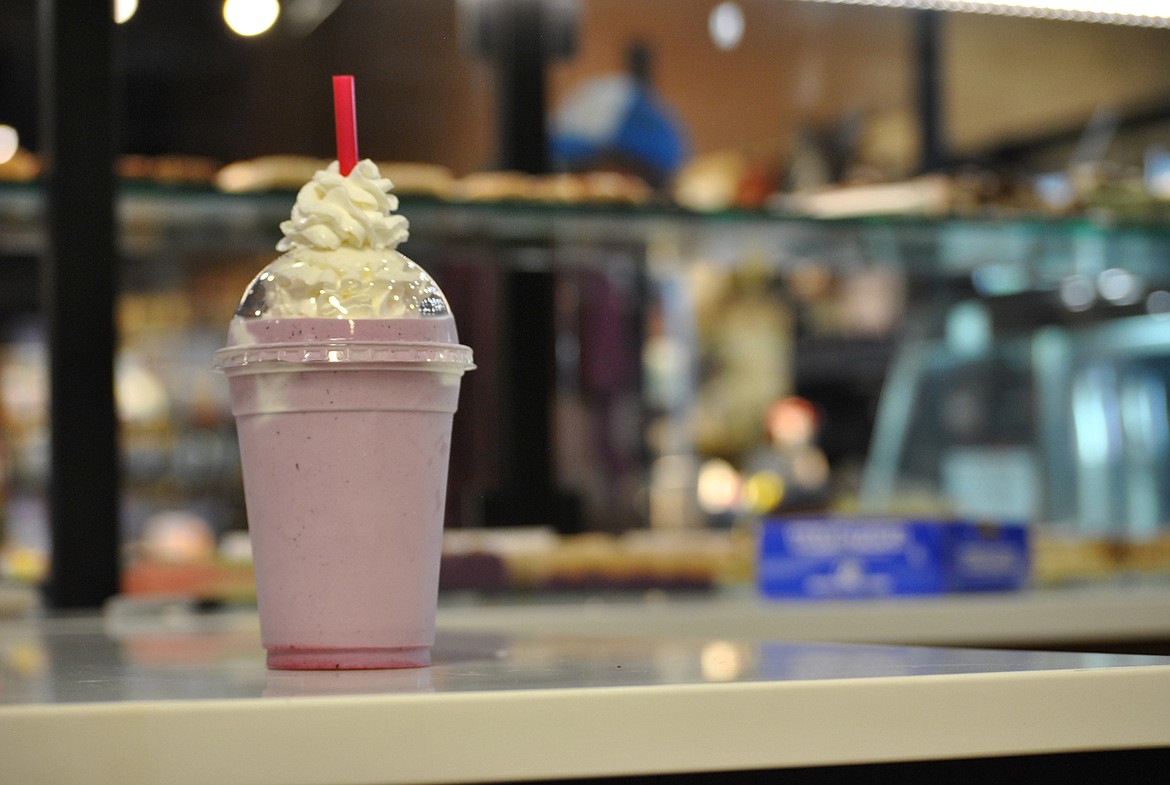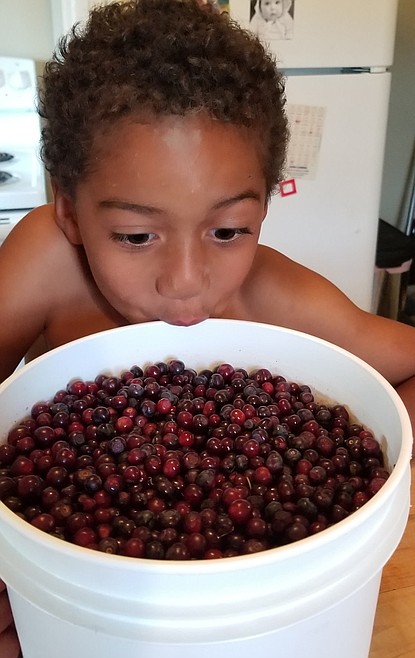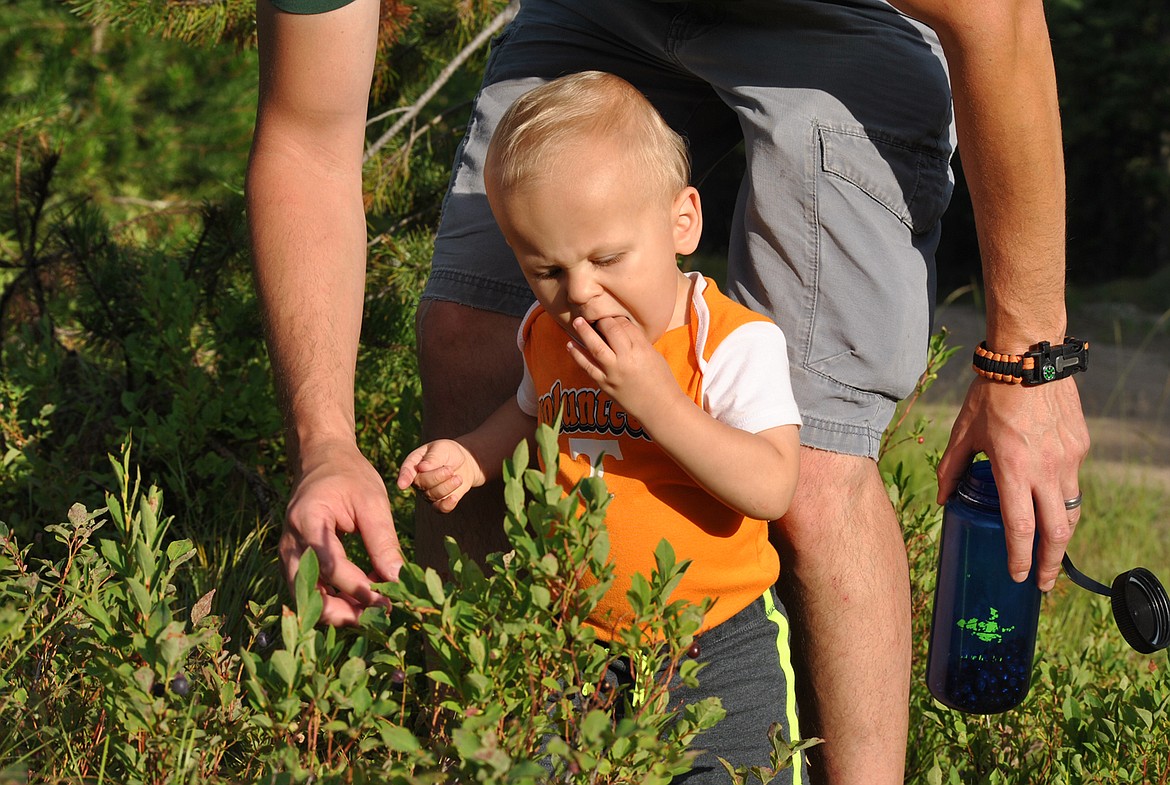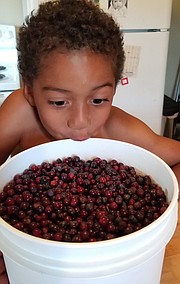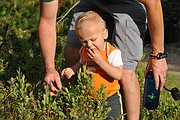It’s huck time in Western Montana
In Western Montana, it is considered a quintessential part of our beautiful and yet brief summers: huckleberries.
This purple gold, which is a cousin to the blueberry, is attested by locals to be sweeter and far more flavorful, are treasures to be found. These plump and juicy treats have to be worked for however, as residents and visitors to area mountains scour hillsides in search of a tasty bounty.
Typically, the season begins in mid-July and can often last into September. Several factors can dictate a bountiful huckleberry crop, such as extreme high temperatures, too little or too much precipitation, or even wildfires can cause a scarcity.
The perennial shrubs that stand roughly two to three feet high develop into widespread patches blanketing forest floors at elevations between 3,500 – 7,200 feet.
There are two very similar species in Mineral County, the globe huckleberry, (Vaccinium globulare) and the big huckleberry (Vaccinium membranaceum). But the average picker won’t know the difference, most pay more attention to the berries color. The redder the berry the more tart, the darker purple the sweeter.
These sweet morsels are used for a variety of food dishes, like a huckleberry barbeque burger, or huckleberry jam on some morning toast. Wash that down with some huckleberry coffee or tea.
Toss the fresh berries into pancakes and waffles. Mash handful into the bottom of a glass and pour on some lemonade. What might be the most renowned version of enjoying this mountain berry is pairing it with ice-cream.
As you travel along Interstate 90 coming from either direction toward St. Regis, bright billboards proclaim it. “Best Shake Ever!”
This periwinkle frozen drink beckons drivers from all over the country to stop at all hours of the day.
Jen Cheesman has been working at the St. Regis Gift Shop for almost six years. She laughed, “I’ve had people order a huckleberry shake at 6 a.m.” At this point she’s long forgotten how many huckleberry milkshakes she’d made but she exclaimed, “I enjoy making them. The customers always comment on how long they have seen the signs on the highway!”
With this in mind, owner of the St. Regis Travel Center and Gift Shop, Muffy Bullock has to carefully plan out her business’s stock of huckleberries each year to keep up with customer demands.
She explained, “We buy from commercial pickers! We have to buy so many to get through to the next season that we store them on pallets in a commercial freezer storage facility in Spokane. We don’t have enough room onsite plus there is always the worry of a power outage and the possibility of losing thousands of dollars of berries.”
To create their wide variety of huckleberry goodies the company has to buy an impressive 10,000 pounds per year. For the average picker up on a mountain side you’d be lucky to gather roughly a quart sized bag in about an hour. Calculations normally equal eat two berries for every five you pick. For the Gift Shop’s commercial sellers, each gallon of huckleberries is close to five pounds and the price can vary from about $7-$10/gallon.
“Each year pricing and availability differs based on the crop. It looks like it’s a good crop this year but there is uncertainty about the harvest due to Covid. Will more people be picking this year or less?” Bullock wondered.
With the ability to store the fresh berries for long periods of time this helps the business tremendously. She stated, “We are super lucky that huckleberries freeze so well and are tasty right out of the freezer!”
In the frenzy of summer tourism, the St. Regis Travel Center and Gift Shop has to prepare great quantities of their huckleberry mixtures. Bullock exclaimed, “We can make maybe 50 gallons of huckleberry topping for our shakes during a busy week in the summer!” She added, “Visitors to Montana love to try huckleberries and our No. 1 item is our huck shakes.”
Knoxville, Tennessee native Mike Hinton, once considered himself a visitor to St. Regis but now calls the town his second home. On his first summer mission trip to Western Montana Hinton fell in love with the so-called “Best Shake Ever.”
“After that first sip of a huckleberry milkshake from Huck’s, it went to the top of my milkshake list. Hinton also admitted, “I drank three in one day, I would have gone back for a fourth but I was too embarrassed!”
Now it is a cherished tradition for Hinton to order up a huckleberry shake on each visit back to Montana. Nothing satisfies more after a long day of serving in mission team work at the local church, or hiking the mountains searching for elk during archery season. Hinton said, “It’s always my reward.”
For St. Regis resident Susanna Feiro and family, picking berries has always been a summer tradition. “Growing up in the midwest, my husband and I have always enjoyed filling our freezer with wild berries, mostly blueberries and blackberries,” she said.
Feiro explained, “When we moved to this area, we couldn’t help but find bushes filled with delicious, sweet yet tart huckleberries. Along a roadside, on a trail, or on the side of a mountain.”
The families harvesting strategy, “We try to pick lower spots mid-July until about the end of July and bushes in higher elevation through August. I feel it is another way of lending time to be taken by only activities that can be done during the beautiful Montana summer months.”
By the end of the summer the Feiros try to put away enough berries to be enjoyed in dishes all year long. A family favorite recipe is buttermilk donuts made with their stash of sweet huckleberries.
It is prime picking time in the high country at this point in the summer, at lower elevations most patches are being snatched up. Higher elevation bushes are quickly ripening with the warmer weather and pickers will find fewer green berries as the season continues. But if the heat persists the huckleberries will start to wither and the bushes as well.
Now if you’re new to finding hucks, don’t go out and ask your neighbor, that would be about as taboo as asking a buddy for his favorite hunting or fishing spots.
Instead head off onto just about any Forest Service road and drive up. Seek out sub-alpine forests with 50 percent tree coverage, the plants need a good amount of sunlight to produce a harvest of berries. Large quantities of bushes can be found in 20-50-year-old burn areas, older clear-cuts, and along avalanche chutes.
Also remember that humans aren’t the only ones who enjoy these delicious berries, so along with a container for your pickings, bring some bear spray, too.

